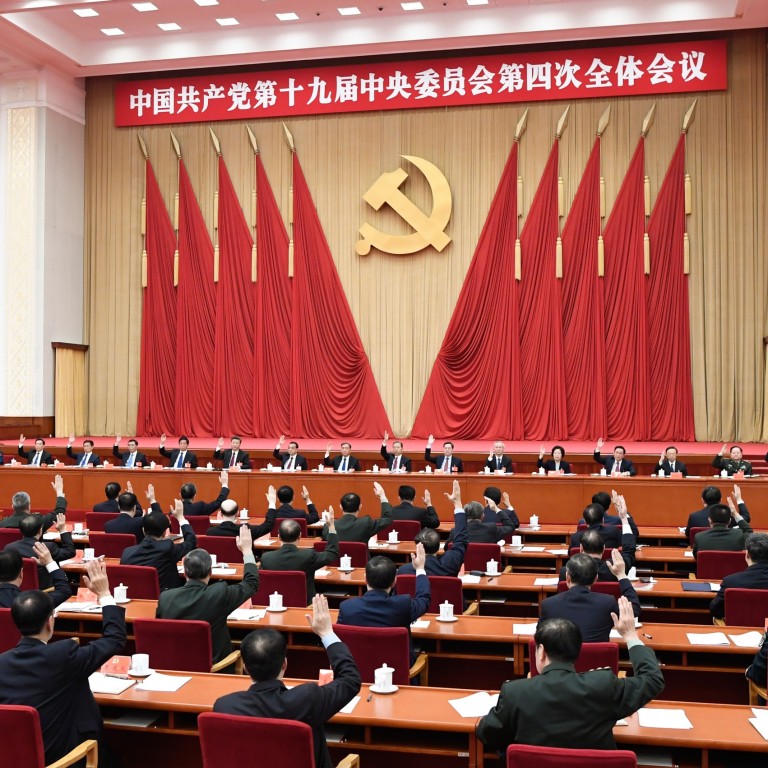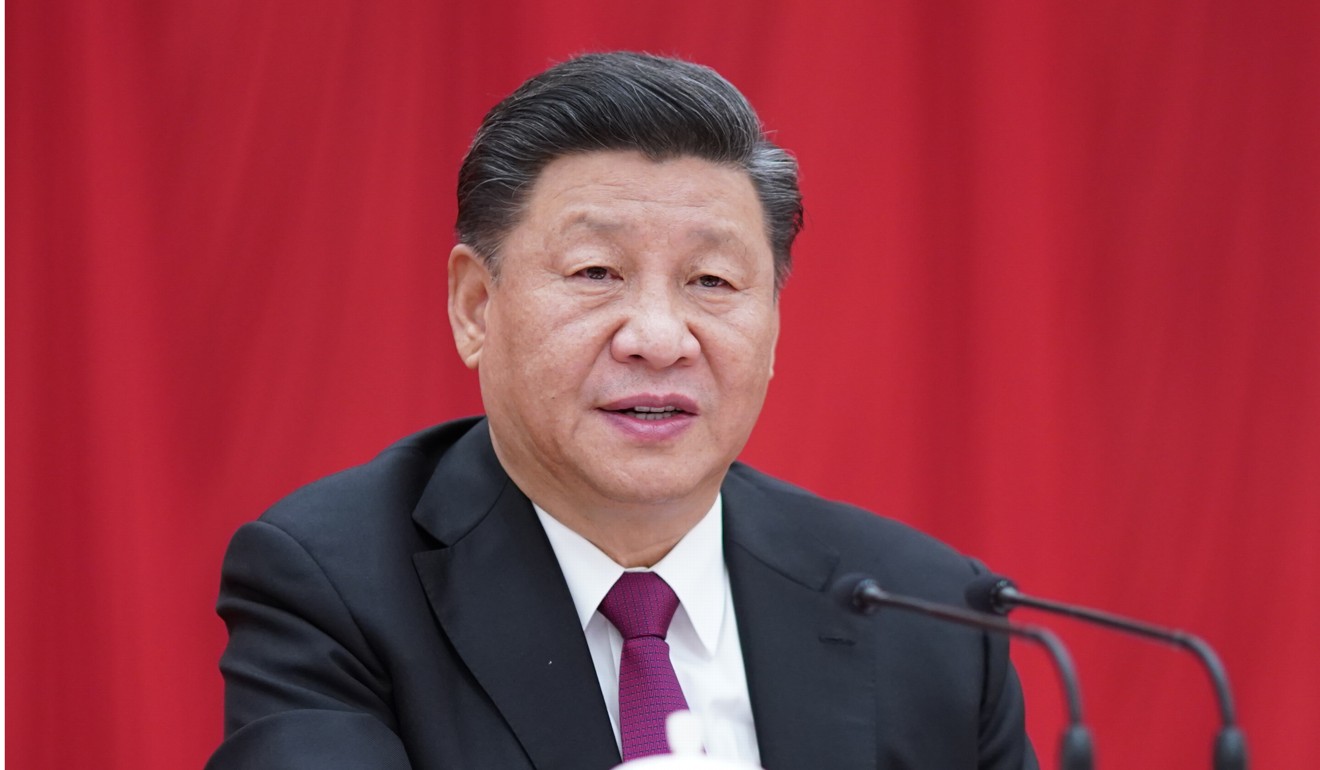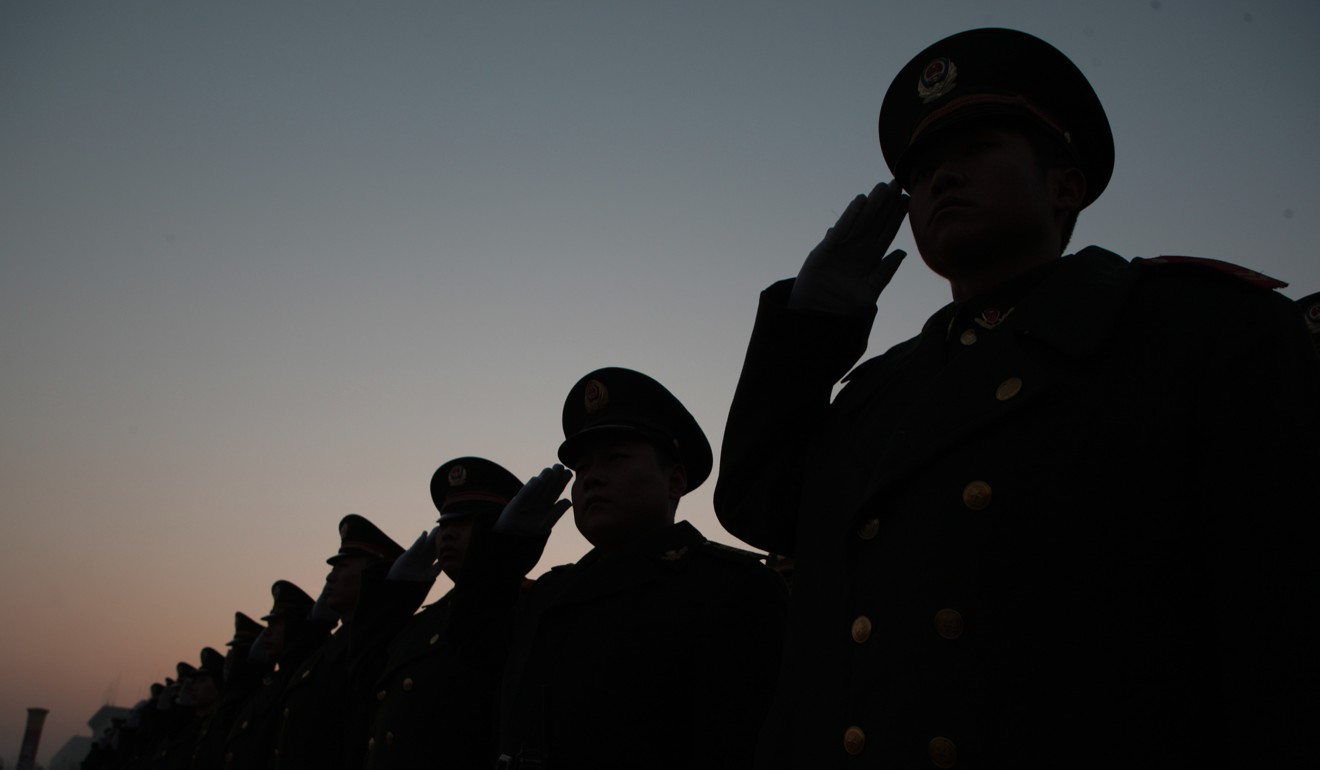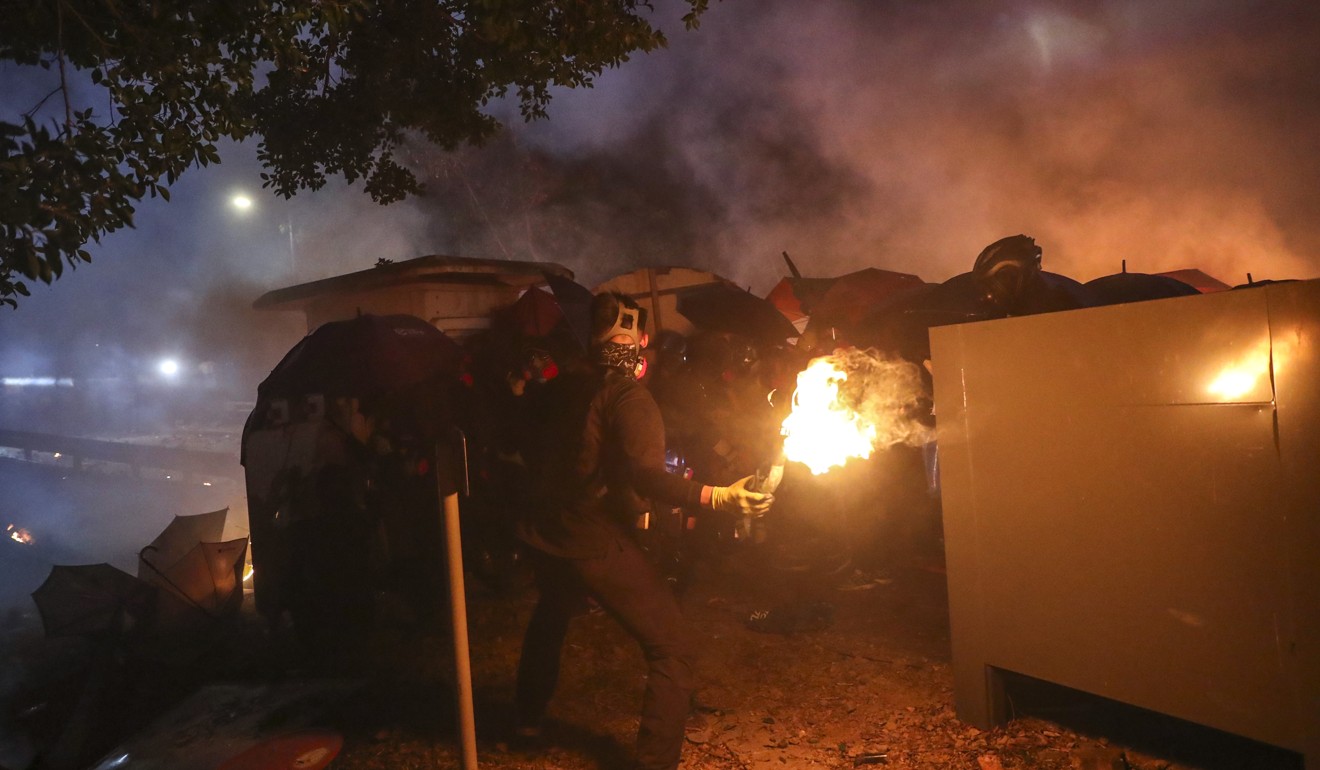
From Hong Kong to the military: the Communist Party’s top new talking points
- In the wake of this month’s Central Committee meeting, officials are fanning out across China to spread the party’s word on the national direction
While the lectures are expected to be delivered behind closed doors, their content will be based on a key document produced by the four-day plenum: “The Communist Party Central Committee’s resolution on several key issues of maintaining and perfecting the socialist system with Chinese characteristics and promoting the modernisation of the state’s governance system and capacity”.
The title might be quite a mouthful, but it lays out some important policy directions the party has set out for the country. Here are five takeaways:
● Communist Party leadership
The document lays out important policy directions the party has set out for the country, the first of which centres on the party’s leadership.
It stresses that country’s strength stems from the “centralised and unified leadership” of the party but there is a need to “modernise” governance, a message that reflects President Xi Jinping’s push to consolidate party and state institutions to centralise authority.
It also underlines that the consolidation must start showing results by 2021 in time for the party’s centenary. Meanwhile, the state governance system and capacity would be “basically modernised by 2035” and reach full modernisation by 2049.

● Boosting economic growth
But the document offered no new narrative on tackling the challenges.
Instead, it repeated the party’s well established line that Beijing would adhere to the principle of state ownership as the “primary entity” and resolutely “consolidate and develop the state-owned economy”, while also promising to open up its markets with more foreign investment-friendly policies.
“[We will] implement a more extensive and in-depth opening up … protect the rights of foreign investors, to create a fair competitive environment for domestic and foreign companies, and diversify trade,” it said.
The document reaffirmed the full control of the People’s Liberation Army (PLA) under Xi, the first Chinese leader since Mao Zedong to be chief of both the party and the military.
“[We must] strengthen and affirm the direction of Xi Jinping’s … thoughts on national security and military development,” it said. “[We must] support the unification of the nation’s armed forces under the leadership of the chairman of the Central Military Commission.”
It stressed the need to pass on “red genes”, or loyalty to the party, and to fight “wrong political ideas” that would “nationalise” the military, making it “less aligned with the party and less political”.

● Turmoil in Hong Kong
Another key element of the document is the section on upholding “one country, two systems” – the principle that grants Hong Kong and Macau a high degree of autonomy.
“[We will] establish a sound legal system and enforcement mechanism for the safeguarding of national security in the special administrative regions, and support the special administrative regions in strengthening law enforcement,” it said.
It emphasised Beijing’s absolute authority over Hong Kong and Macau, especially over the appointment of principal officials and the interpretation of each region’s Basic Law. It also stressed the importance of stepping up so-called patriotic education in Hong Kong and Macau, especially among civil servants and young people.

● Handling Taiwan
The document called for “closer integration” across the Taiwan Strait and the rejection of all calls for “Taiwan independence”.
“Under the principle of protection of national sovereignty, security and development, [we will] fully respect Taiwan’s way of life after a peaceful reunification,” it said, adding that the unification remained the “common wish of all Chinese people” and “serves the fundamental interests of Chinese people”.

